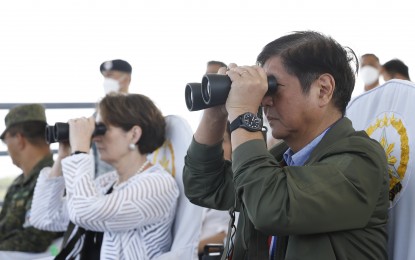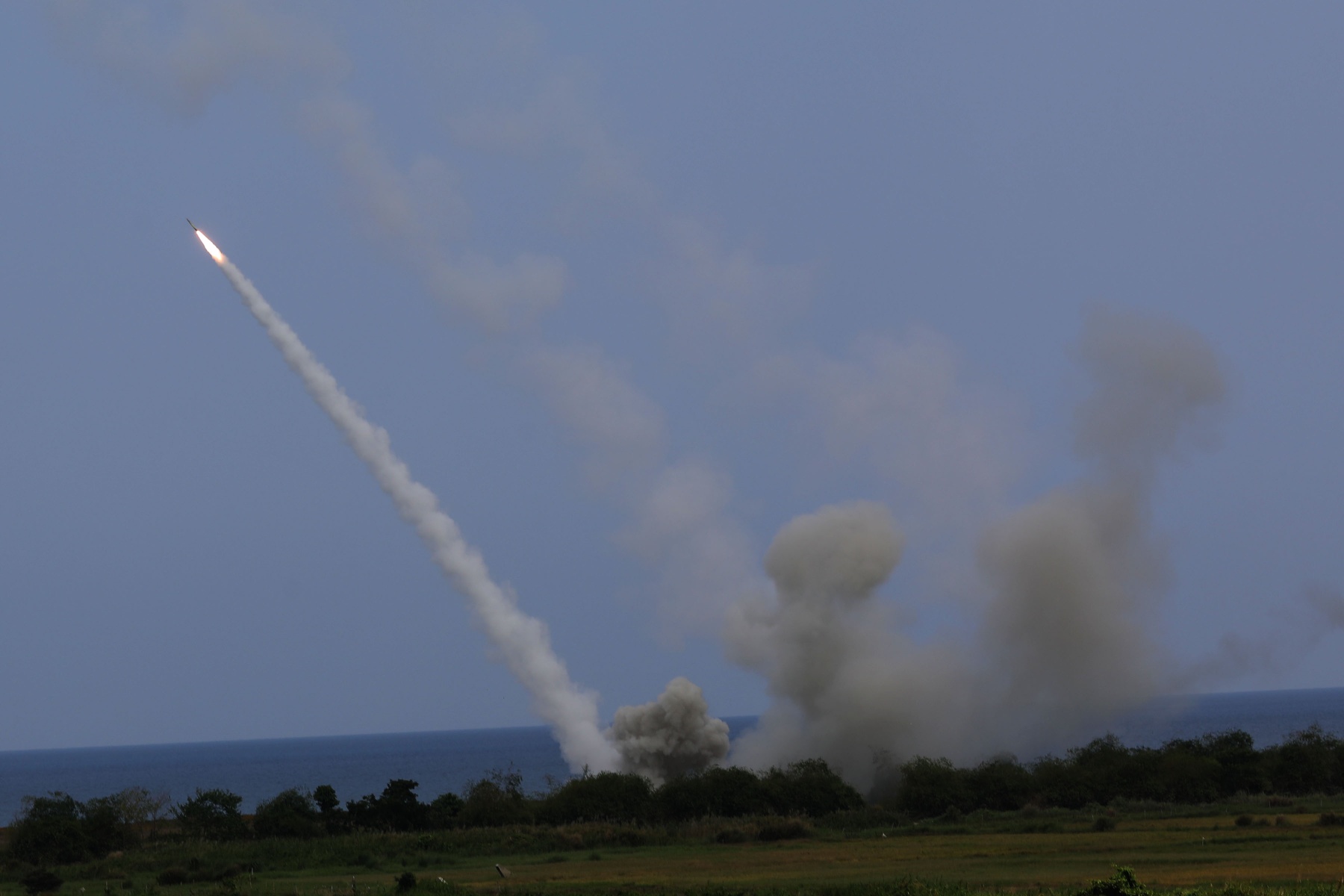
LIVE-FIRE DRILLS. President Ferdinand R. Marcos Jr. uses binoculars as he witnessed the live-fire sea drills of the Philippines and the United States to culminate the field training event for this year's Balikatan Exercise in San Antonio, Zambales on Wednesday (April 26, 2023). The 2023 Balikatan Exercise kicked off last April 11 with over 17,600 participating Filipino and American military personnel. (PNA photo by Alfred Frias)
MANILA – President Ferdinand R. Marcos Jr. on Wednesday watched the live-fire sea drills of the Philippines and the United States to culminate the field training event for this year's "Balikatan" exercises.
Marcos witnessed the US and Philippine combat units participate in a combined joint littoral live-fire exercise involving the sinking of an old Philippines Navy ship some 2.8 kilometers from the Naval Education Training Doctrine Command (NETDC) in San Antonio, Zambales.
According to the Presidential Communications Office (PCO), Marcos expressed hope the country could benefit from enhanced cooperation with the United States through these joint military drills.
The PCO also noted that both Filipino and American military officials believe that the training event represented a tangible demonstration of the US-Philippine commitment to strengthen military capabilities and interoperability to meet shared modern-day security challenges.
Balikatan is the largest annual exercise between the Philippines and the US and 2023 marks its 38th iteration and the largest iteration to date with around 17,600 participants.
Balikatan 2023 aims to develop interoperability and enhance bilateral capabilities in the areas of maritime security, amphibious operations, live-fire training, urban and aviation operations, cyber defense, counterterrorism and humanitarian assistance and disaster relief preparedness.
The bilateral weapons systems used in the war games consisted of US and Philippine artillery, High-Mobility Artillery Rocket Systems (HIMARS) and the Avenger air defense systems.
State-of-the-art combat aircraft were also mobilized including AH-64 Apache attack helicopters, Philippine Air Force FA-50 Golden Eagle fighter-attack aircraft, F-16 Fighting Falcons, US Marine F-35B Joint Strike Fighters and the US Air Force Special Operations Command AC-130 Spectre gunship.

The Philippine and US combat units participate in the Balikatan Exercise 2023's live-fire drills in San Antonio, Zambales on Wednesday (April 26, 2023). (PNA photo by Alfred Frias)
One of the most anticipated weapons from the US arsenal was the HIMARS, a full-spectrum, combat-proven, all-weather, 24/7, lethal and responsive, wheeled precision strike weapons system.
HIMARS is a C-130 air transportable wheeled launcher mounted on a 5-ton Family of Medium Tactical Vehicles XM1140A1 truck chassis organic/assigned to Field Artillery Brigades.
Among key Philippine officials who attended were AFP Chief of Staff Gen. Andres Centino, National Security Adviser Eduardo Año, Zambales 2nd District Rep. Doris Maniquiz, Zambales Governor Hermogenes Ebdane Jr. and Presidential Adviser on Peace, Reconciliation and Unity Secretary Carlito Galvez Jr.
For the US side, the attendees were Ambassador of the US to the Philippines MaryKay Carlson, US Deputy Assistant Secretary of Defense for South and Southeast Asia Lindsey Ford and US Exercise Director Lt. Gen. William Jurney.
The US-Philippines Mutual Defense Treaty was signed in 1951 and is America’s longest standing defense treaty in the Indo-Pacific region. (PNA)
